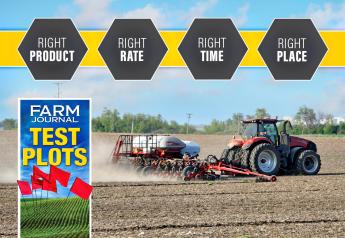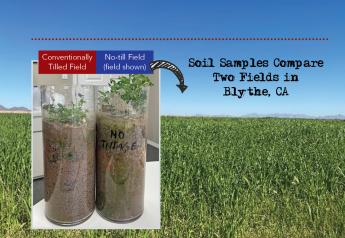Academy Helps Managers Tackle Marketplace Shifts

Consumer preferences for food production methods, continuous practice improvement and pricing pressures. Farmers face them and—as the suppliers of inputs that keep farms running—so do agricultural retailers.
These cultural shifts present challenges that agricultural retail managers, agronomists and sales professionals have to help their organizations solve. At the 2018 ARA Management Academy, Jan. 29 through Feb. 1 in Tempe, Ariz., agricultural retail managers will look at the current issues their organizations and customers face. And they will look at how they, as managers, contribute to organizational and customer success in an ever-evolving industry.
The academy is led by Purdue University’s Center for Food and Agricultural Business in partnership with the Agricultural Retailers Association and the W.P. Carey School of Business at Arizona State University (ASU).
Societal Preferences
It’s no secret that the societal preferences in food production are changing. Consumers are more interested than ever before in the ways that food is grown or raised, the environmental impacts of food production and the health and safety of food products.
Agricultural retail managers might not realize it, but they have a role in helping their organizations succeed in this arena, says Allan Gray, Purdue professor of agricultural economics and center director.
“The role of the retailer is changing,” says Gray, who is the faculty lead for the management academy. “Retailers are challenged with how to identify new production practices and systems that help farmers enhance their productivity while continuously improving their environmental footprint.”
Not only do retailers have a responsibility to understand production systems and practices, but they also must educate producers and help them adopt improved methods. It’s an area where retailers can provide additional value to their clients.
Carola Grebitus, an assistant professor of food industry management at ASU, will lead the discussion about consumer preferences at the ARA Management Academy. She will talk about the implications for ag retailers and the food system. An industry panel of experts working in sustainability also will share insights from their experiences in tackling these challenges.
“Agriculture has adopted a mentality of continuous improvement when it comes to the industry’s environmental footprint, and agricultural retailers play a big part in that,” Gray says.
Transparent Marketplace
Another challenge agricultural retailers face is the increasingly transparent marketplace driven by digital technologies. Customers now have the ability to easily access pricing and compare competitors. This is a disruption in the marketplace—one that Gray says retailers have to manage.
“The role of the retailer in dealing with an increasingly transparent marketplace comes down to operations and supply chain management,” he says. “Efficiency is the key. Not only are analytical solutions important to optimize performance, but human and social considerations are also key factors.”
While the industry has typically focused on driving out cost, there has been a growing push to revamp supply chains and operations to be more responsive and flexible to create and capture value.
Thomas Kull, associate professor of supply chain management at ASU, will offer his expertise in this area at the ARA Management Academy. He will focus on behavioral issues in operations and supply chain management, and he will address supply chain risk.
Leadership
A major component of successfully navigating today’s agricultural challenges is preparing and leading employees to cohesively pursue organizational strategy—something that requires effective leadership.
“This dynamic, uncertain and always-changing agricultural environment requires critical leadership skills to help employees see the big picture,” Gray says. “Everyone needs to feel confident that they can provide value, both to the organization and to the customers.”
Suzanne Peterson, associate professor of leadership at ASU, will show ARA Management Academy participants how leadership skills impact managerial influence, employee motivation and engagement. She will explore and offer insights on how to thrive in environments with constant change.
The Academy
In addition to Grebitus, Kull and Peterson, Purdue faculty members Gray, Scott Downey and Michael Gunderson will cover topics that include strategic thinking, profitability and creating customer value.
Another key benefit of the program and its Tempe location is it will bring together retailers from various agricultural sectors—from commodities to produce.
“Agricultural retailers who serve farmers growing crops closer to consumption, such as peppers, have been dealing with some of the challenges of consumer preferences and sustainability longer than those working with commodities producers,” Gray says. “Attendees will interact with retailers who have different experiences and perspectives.”








